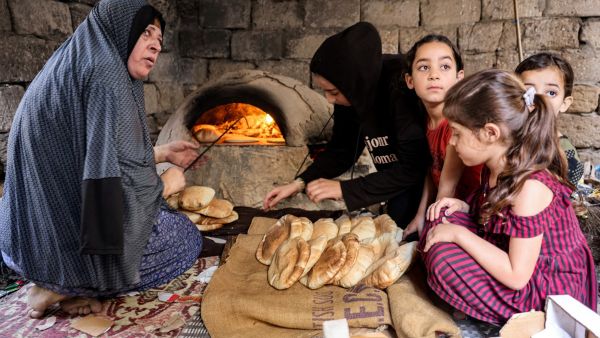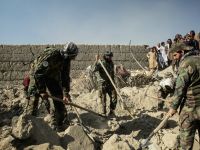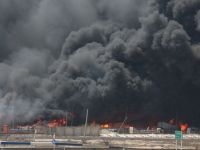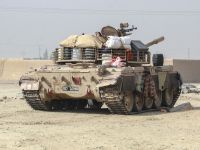Hundreds of thousands have fled Khan Yunis in the Gaza Strip, where Israeli strikes have damaged crucial grain warehouses and halted a key flour mill due to fuel shortages.
The situation intensifies as the Red Cross awaits Israeli authorization for repairs, warning that the Gazan bakers' association may cease operations.
In the central Gaza Strip, the UN reports the destruction of another mill, exacerbating the dire state of the five flour mills in the densely populated territory.
With at least two flour mills hit, the scarcity of flour in Gaza has led to astronomical prices, reaching up to $200 per bag. The UN World Food Programme (WFP) issued a stark warning of "the immediate possibility of starvation" as food and water become scarce, exacerbated by power cuts and a lack of fuel.
Despite a trickle of humanitarian aid through Egypt, only seven percent of the people's daily minimum caloric needs are covered by the 450 food-laden trucks out of the 1,100 allowed into Gaza. UNRWA reveals a mere 2,000 tonnes of wheat remain, equivalent to five-to-six days' supply.
The UN agency works with 80 bakeries across Gaza, but in the north, where fighting is most intense, all are closed. In central and southern Gaza, 63 bakeries struggle to operate due to scarce fuel. The largest bakery in Gaza City shut down after an Israeli strike, leading to looting of remaining flour by hungry residents.
Queues outside bakeries have become a daily ordeal, with residents waiting for an average of five hours, exposed to the threat of air strikes. US aid agency Mercy Corps reports its staff paying $30 for five pieces of bread in Gaza, where shop shelves carry signs reading "No more bread" or "No more yeast."
UNRWA, alongside the WFP, distributes bread to 154 shelters hosting 813,000 people, but fuel shortages often impede the delivery trucks. As desperation grows, Gazans have resorted to making their own bread. However, the scarcity of essential ingredients, including flour, water, and salt, plagues large parts of the Gaza Strip, leaving hungry residents to skip or reduce meals and sometimes resort to consuming raw onion and uncooked eggplant.







